Raeisi says UN should act for all nations, not just for powers
Iranian President Ebrahim Raeisi has called on the United Nations to be a representative of all nations of the world rather than that of major powers as he emphasized the role of dialogue in resolving regional crises.
President Raeisi made the remarks in a meeting with António Guterres, Secretary General of the United Nations, on Thursday evening on the sidelines of the UN General Assembly in New York.
"The United Nations should truly be an organization for nations not that of powers," said Raeisi.
Pointing to the ongoing crises in some of the regional countries, Raeisi noted that the resolution to all of them lies in the formation of national dialogue without any foreign intervention.
Iran supports the establishment of regional dialogue for resolving bilateral issues between regional states, he also noted.
It is necessary for the UN to play a "more serious" role in confronting unilateralism, added Raeisi.
The Islamic Republic of Iran is the friend of its neighbors in tough times, he said, while also referring to humanitarian measures of Iran in hosting Afghan refugees and also its fight against terrorism which was a great danger for the region and the world.
Elsewhere, President Raeisi touched upon the destructive military intervention of Western countries in the West Asian region, saying the presence of the US and NATO in the region has resulted in nothing but "war, destruction, occupation, and murder."
UN lauds Iran's regional efforts
For his part, Guterres praised the continuous measures of Iran in receiving Afghan refugees as well as its role in sustaining the truce in Yemen.
Describing US withdrawal from the 2015 nuclear deal as "unconstructive", he regretted that anti-Iranian sanctions were not eased amid the coronavirus pandemic.
He voiced the United Nation's support for Iran's initiative on establishing regional dialogue.
Confirming the stances of the Islamic Republic with regard to human rights, the UN chief said that human rights should not be used as a means and excuse for waging war against countries.
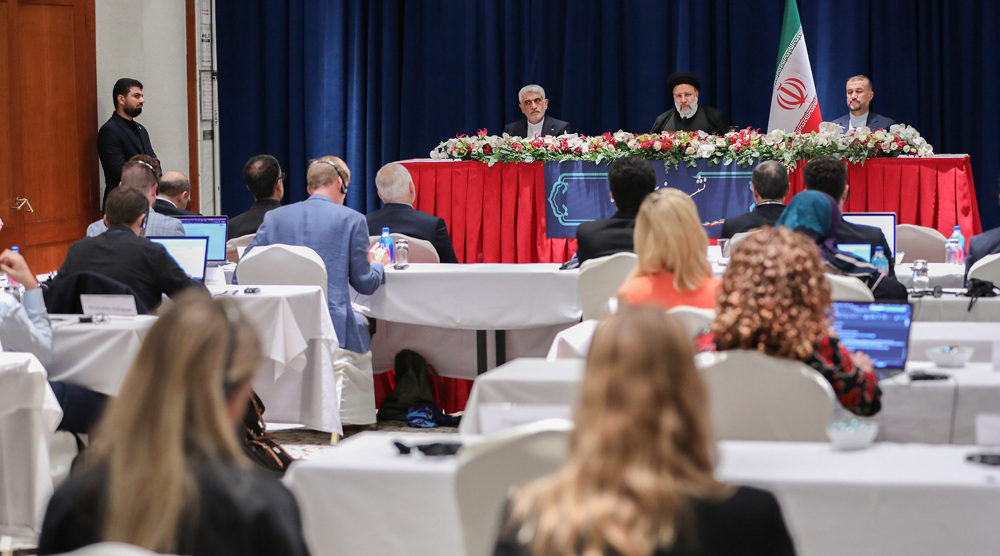
President Raeisi addresses a meeting with American senior media executives in New York, the US, on September 22. (Photo by President.ir)
President Raeisi also held two meetings with the press on Thursday morning in New York. He addressed American senior media executives in one of the meetings while holding a press conference with the participation of Iranian and foreign reporters later in the day.
'Mahsa Amini's death under investigation'
In response to a question about the circumstances surrounding the death of Mahsa Amini, an Iranian young woman who died days after she was arrested in Tehran, Raisi said the cause of this incident is under investigation by legal and specialized authorities.
He also referred to his phone conversation with Amini's family in which he had assured them that all aspects of this incident would be studied.
"Keep this in mind that the most important necessity of defending human rights is to stay away from double standards while dealing with this issue," he said.
"Are Western media showing the same sensitivity towards similar incidents that happen in European countries and the US compared to this incident in Iran?" he asked while referring to reports of violence against women and people of color in the US and some European countries.
Touching upon the unrest in a number of Iranian cities, he noted that "Protest is an issue that may happen in any country."
"There is a level of freedom in the Islamic Republic of Iran according to which all people can voice their opposition to political, economic, scientific, and social issues. However, riots are different from protests."
'Iran to help end Ukraine conflict'
In response to a question on whether Iran could mediate between the conflicting parties and end the war in Ukraine, Raeisi said that Iran is "against any kind of war and conflict given its bitter experience of the 8-year war we had."
"We will use all our power and connections to end this conflict," he said, adding elsewhere that war cannot settle differences, rather, issues should be resolved through dialogue.
Responding to another question about cooperation between Iran and Russia, he said that the two countries have inked various agreements in the fields of defense, trade, economy, etc. and that these ties have not been established in the past few months but were initiated years ago.
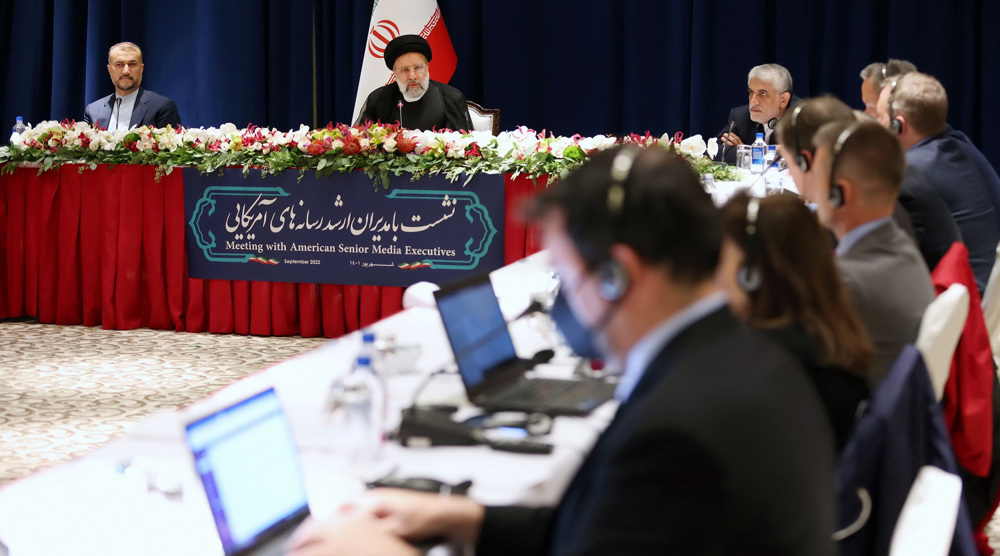
President Raeisi addresses a meeting with American senior media executives in New York, the US, on September 22. (Photo by President.ir)
'Referendum only way to solve Palestinian issue'
Responding to a question about the stance of Tehran regarding the Zionist Regime and the solution to the Palestinian issue, Raeisi named holding a referendum as the sole approach to solve the issue.
"The Palestinian people of different religions lived in their ancestral land for thousands of years, but their homes and houses have been occupied for 70 years and they are displaced in their own land or like Gaza where their place of residence has turned into a massive prison," he said.
"The solution to this problem is not agreements like Camp David, Sharm el-Sheikh or Oslo, because these agreements could not solve the problem of the historical inhabitants of this land and defend their rights."
He noted that the solution lies in the proposal that the Islamic Republic has already made and has been registered in the UN Security Council as a document, adding that this proposal is completely compatible with the claims of Western countries to support democracy.
"Holding a free election with the participation of all Palestinians, regardless of whether they are Jews, Christians or Muslims will lead to the establishment of a government that can solve the problems of the Palestinians and provide for their rights."
He also said that "relying on the opinion and will of the people" could solve the problems of other regional countries such as Yemen, Syria, and Afghanistan.
"Therefore, the problem of these countries should be resolved through dialogue and understanding between the people of these countries, and foreign interference in their affairs should be seriously avoided because their people can decide for their own future."
Raeisi left New York for Tehran on Friday morning. He stayed there for four days to deliver his speech at the UN General Assembly and hold various meetings on the sideline of the UNGA.
‘Assassination of Gen. Soleimani a clear example of state terrorism’
In response to a question about the reason he held a photo of Iranian top anti-terror commander General Qassem Soleimani during his address to the 77th UN General Assembly, Raeisi said that the assassination of this top commander was actually the assassination of a hero in the fight against terrorism.
Soleimani, accompanied by other anti-terror fighters in the region, made sacrifices to return security to the region at the time when Daesh and other terrorist groups had ruined the lives of people in the region.
"Don't Americans claim to be fighting terrorism? Wasn't it announced in an official election debate in that country that Daesh had been founded by Americans? Was the reward of Haj Qassem's fight against Daesh and his saving of the region from the evil of this criminal group his own assassination when he was an official guest of another country?"
The assassination, directly ordered by former US President Donald Trump, occurred near Baghdad airport on January 3, 2020. It also killed Soleimani’s companions, including the deputy commander of Iraq's anti-terror Popular Mobilization Units (PMU), Abu Mahdi al-Muhandis.
Both Soleimani and al-Muhandis were highly revered across the Middle East because of their key role in fighting the Daesh Takfiri terrorist group in the region, particularly in Iraq and Syria.
Pointing to the direct responsibility of Trump for the assassination, Raeisi asked "Isn't this a clear example of state terrorism?"
The Islamic Republic of Iran, he maintained, will seriously pursue the trial of the perpetrators and advisors behind this crime because, in the absence of such a trial, there will be no guarantees that other justice-seekers and anti-terror fighters could be safe in their path of the fight against terrorism.
All the people of the world should appreciate Soleimani's efforts because if he, IRGC Quds Force, and other regional forces had not resisted Daesh, the security of Europe would have been certainly undermined.
China ‘firmly opposes’ US military aid to Taiwan
VIDEO | Press TV's News Headlines
President Yoon Suk Yeol to be removed from office
At least 19 Gazans killed by Israeli airstrikes since dawn: Medics
Leader: Iran neither has nor needs proxy forces
US fighter aircraft shot down ‘in friendly fire’ amid aggression on Yemen
Yemeni FM: Israel’s sponsors accountable for ongoing aggression on Sana’a
Eight Palestinians killed as Israel attacks Gaza school, hospitals


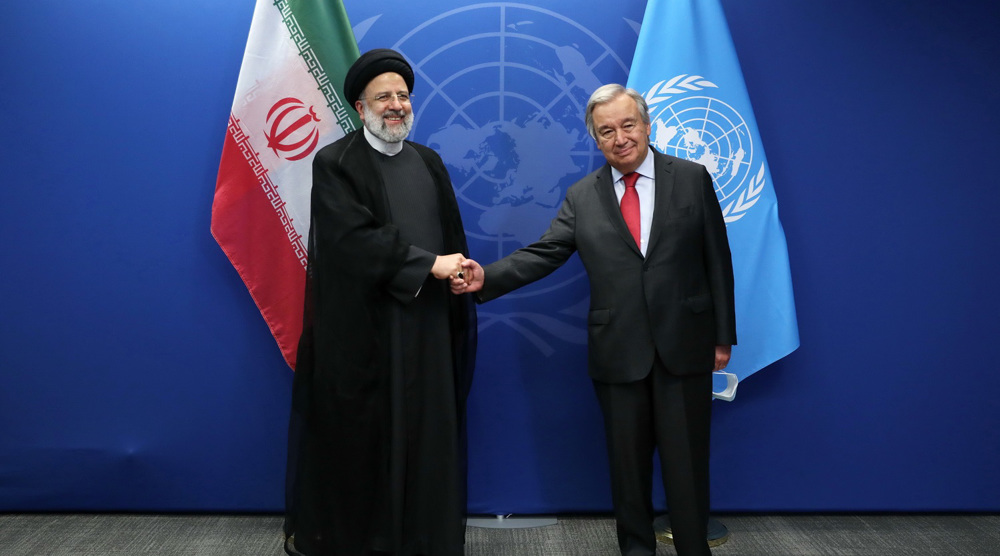
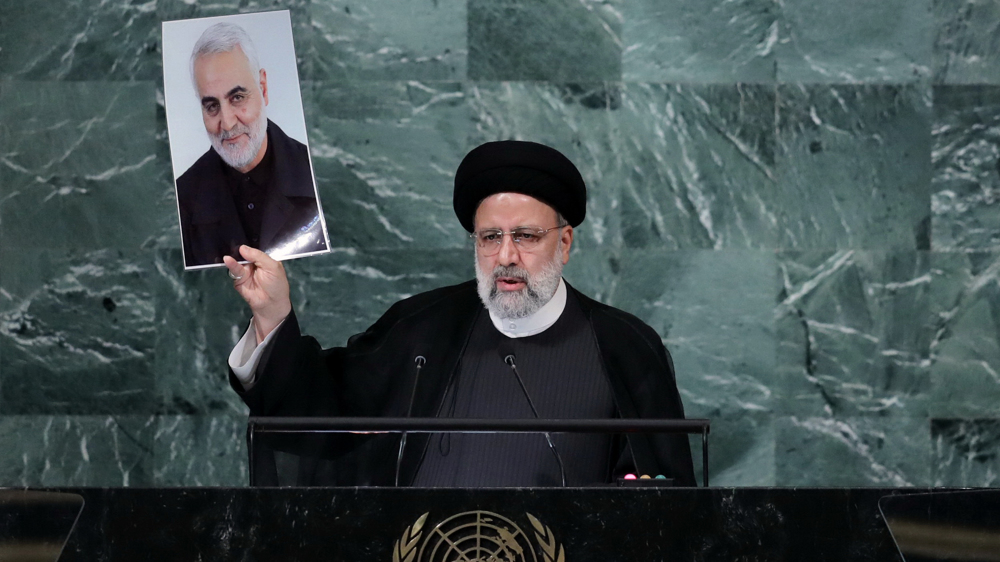
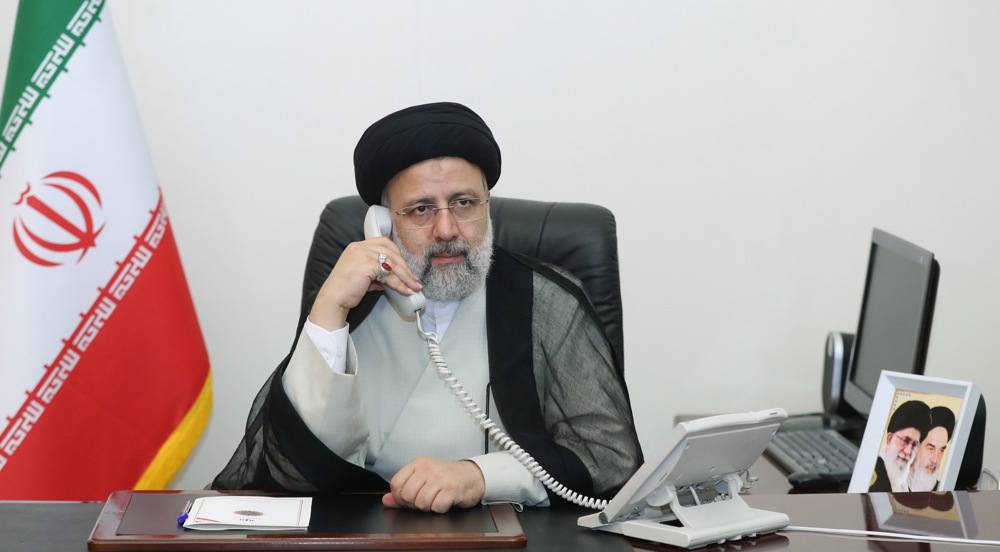


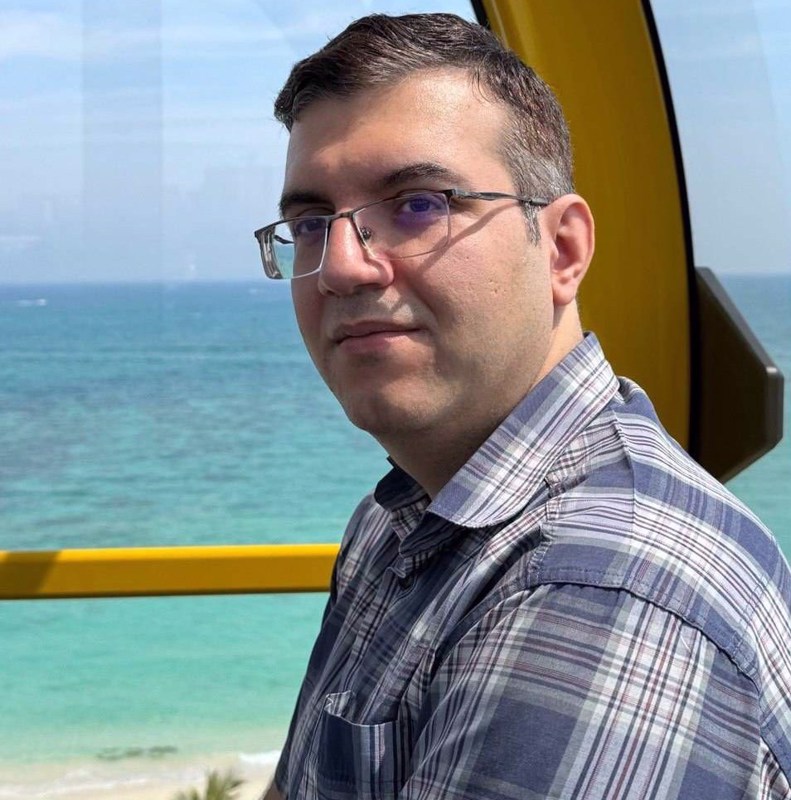



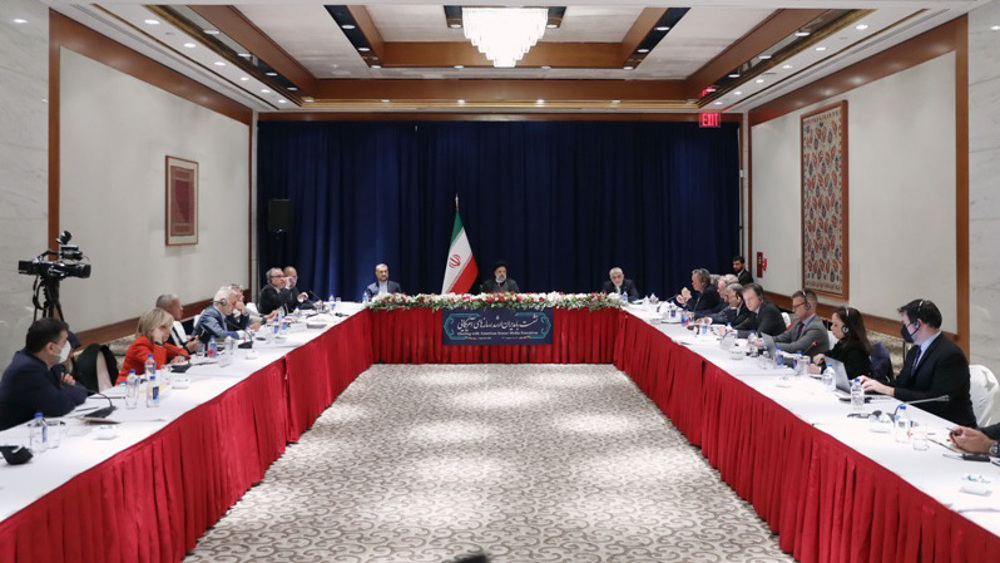
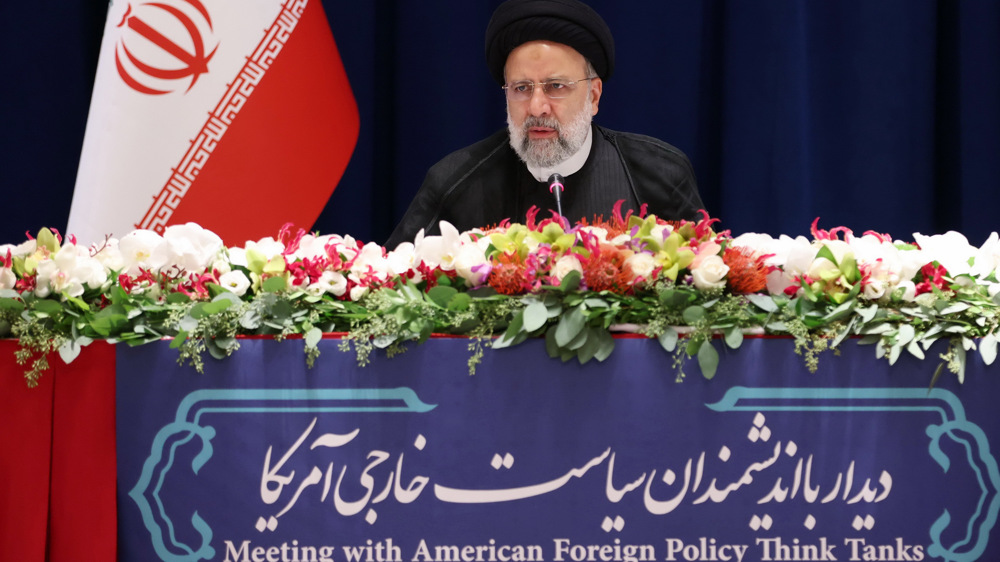
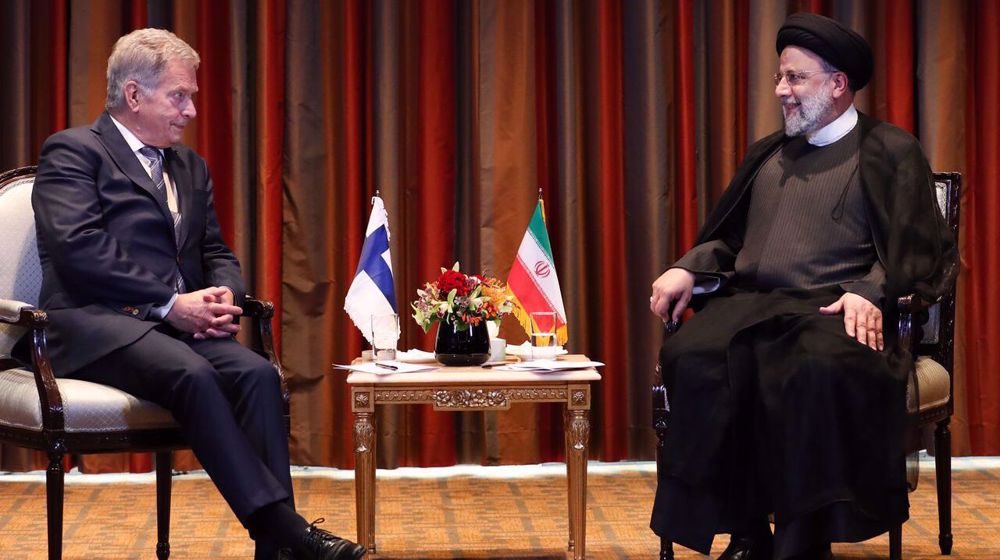
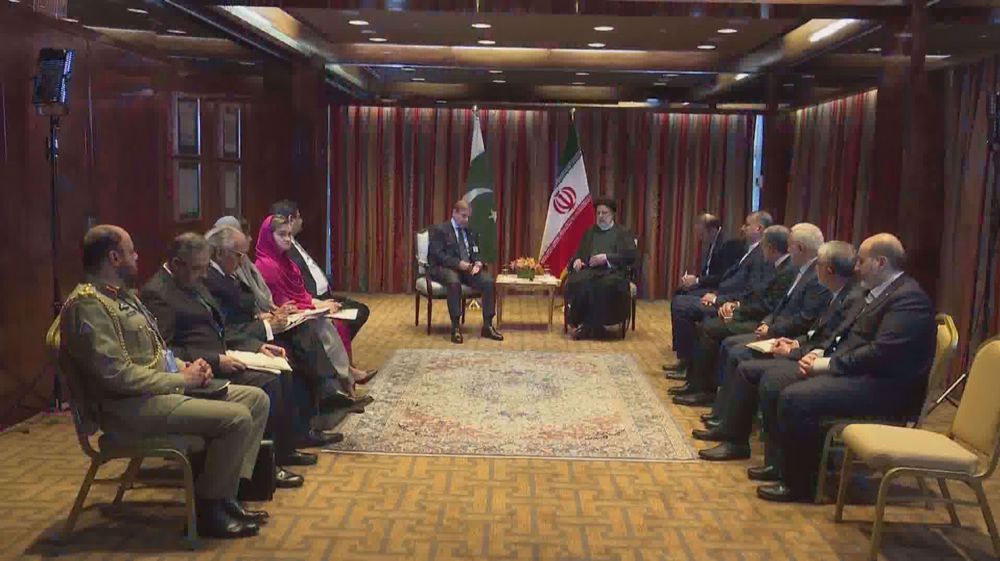
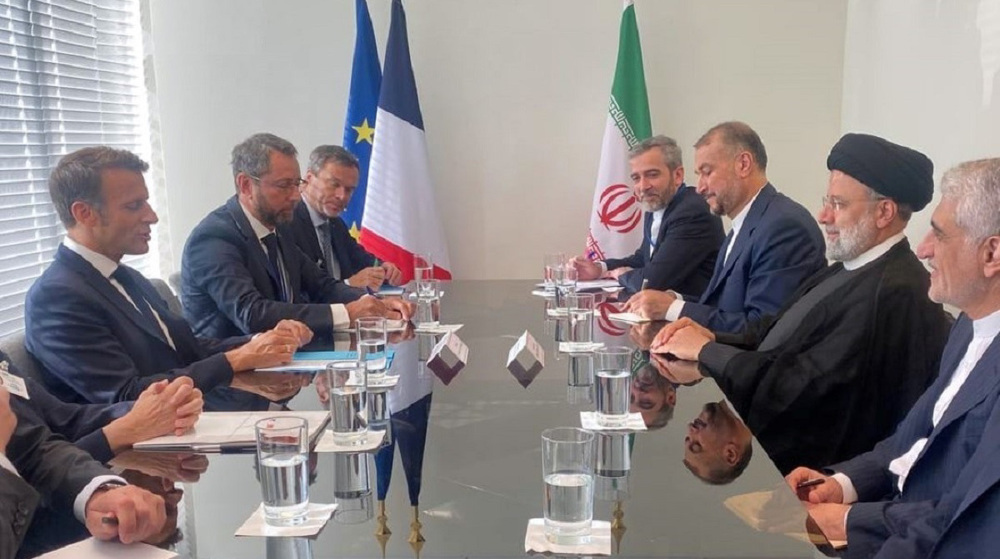

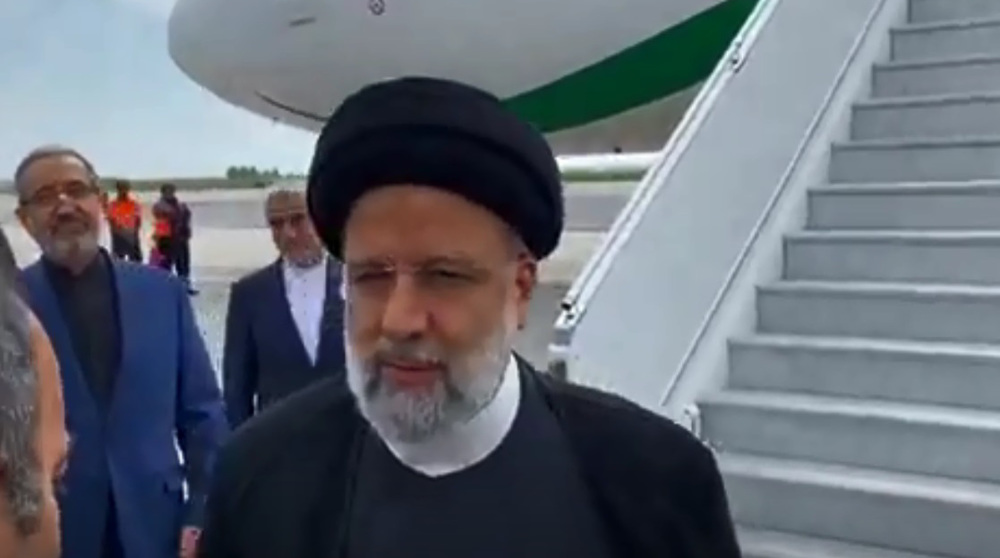

 This makes it easy to access the Press TV website
This makes it easy to access the Press TV website